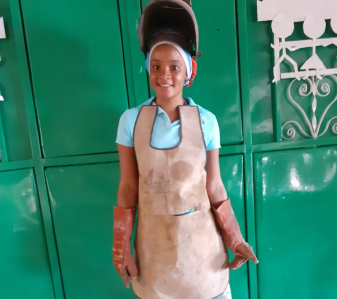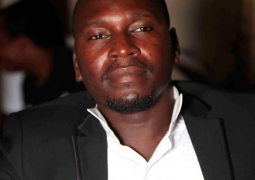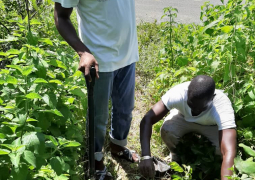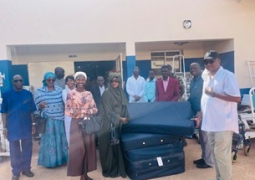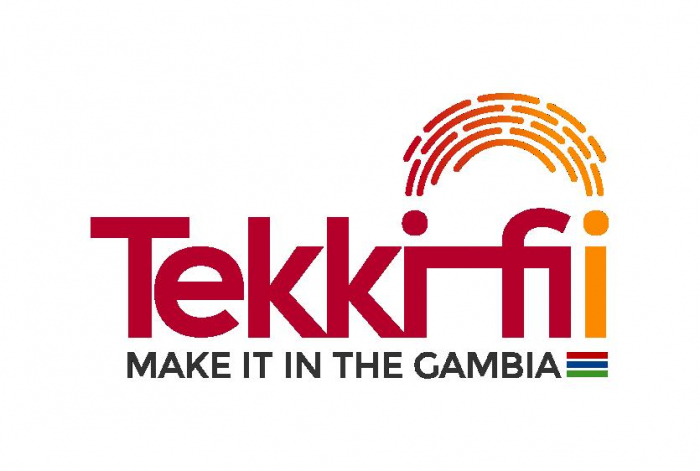
The EU-funded Tekki Fii Project managed by GIZ targeting over 5,000 youths in skills training and business development has set a quota of 30% female participants. Thanks to the courage and determination of its women beneficiaries, as well as to the positive collaboration of its many Implementing Partners, the Project has already reached 40%, and gradually approaching the 50% equity threshold. These women beneficiaries are determined to make a name for themselves and stand up for their families amid every obstacle thrown at them.
To live that dream, Fatou Gassama has chosen to study Solar Installation at Chamen Technical Training Center, which is widely considered as a male-dominated field. “My biggest challenge,” she explains, “was being a female and engaged in the technical field, but thanks to the life skills training, it has taught me how to decide for myself knowing that being a female cannot stop you from doing whatever you want. What a man can do, a woman can equally do.” She also explained how important the Life Skills course has been in molding her professionalism and her ability to make independent decisions: “They have empowered us with all the skills, taught us how to communicate to our clients and how to go over our contracts, which is very essential.” After going through Enter the Labor Market Training, Fatou like most of the trainees is now ready to start a professional career on her own.
It was not an easy beginning for some, as they fight to break all stereotypes surrounding women’s participation in TVET. Like Awa Badjie, a student studying Satellite Installation at GTMI in Banjul, and Hawa B. Jallow, a student in Welding and Simple Farm Tools at Chigambas Skills Training Center in Basse, both from two different regions but with a similar conviction of changing the status quo. “I’ve not seen women engaged in this area, so I wanted to prove that women can do it too. Now I feel very happy and proud of myself because I’m getting income for myself and my family,” explains Awa Badjie. Hawa B. Jallow has become a pace-setter for females in TVET in her hometown Basse and now serves as a source of inspiration to other girls around her: “In the beginning, I was the only female student welder in Basse. But as at now, there are several other female student welders in Basse as a result of me breaking the barrier for women in this male-dominated field.”
Another student in Solar Installation, Christiana Jatta from Sterling Consortium, explains why women should embrace learning a trade: “The idea that the place of women is in the kitchen does not apply to this generation. Come out of your slumber and contribute to nation building!” she asserts.
The Tekki Fii Project funded by the EU does not only encourage women to access male-dominated trade areas, but also supports them to engage in more female-friendly areas such as Fashion Designing, Hairdressing and Beauty Therapy, and move to the next step. Abi Tamba studied Hair Dressing and Beauty Therapy at President’s International Awards (PIA). Abi runs a salon which wasn’t attracting many customers as she was unable to deliver quality service. Now she has garnered proper skills in hairdressing and beauty therapy, as well as in life skills to help her cope with real life situations. Abi explains she is ready to go out and conquer the world because for her no hope is lost: “I see myself grow into an influential woman, a role model especially to girls that went through teenage pregnancy or abuse. I would want to be an example that the world is not over.”
The diversity in the courses show what women can do when given the chance to prove their capabilities in any given field. The success stories of these beneficiaries pave the way for many other women just as their courage inspires female peers to break taboos and overcome socio-cultural barriers. Facilitating their access to TVET and various skills areas can go a long way to building a more equitable and better society for all.
